WantedDesign is a dynamic connector and amplifier for global design, fostering creative synergy and serving as a pivotal crossroad for the international design community across Latin America, North America, and Europe.
Q&A with Winner of Best Conscious Design Award 2020: Julia Liverton for HanD Pen
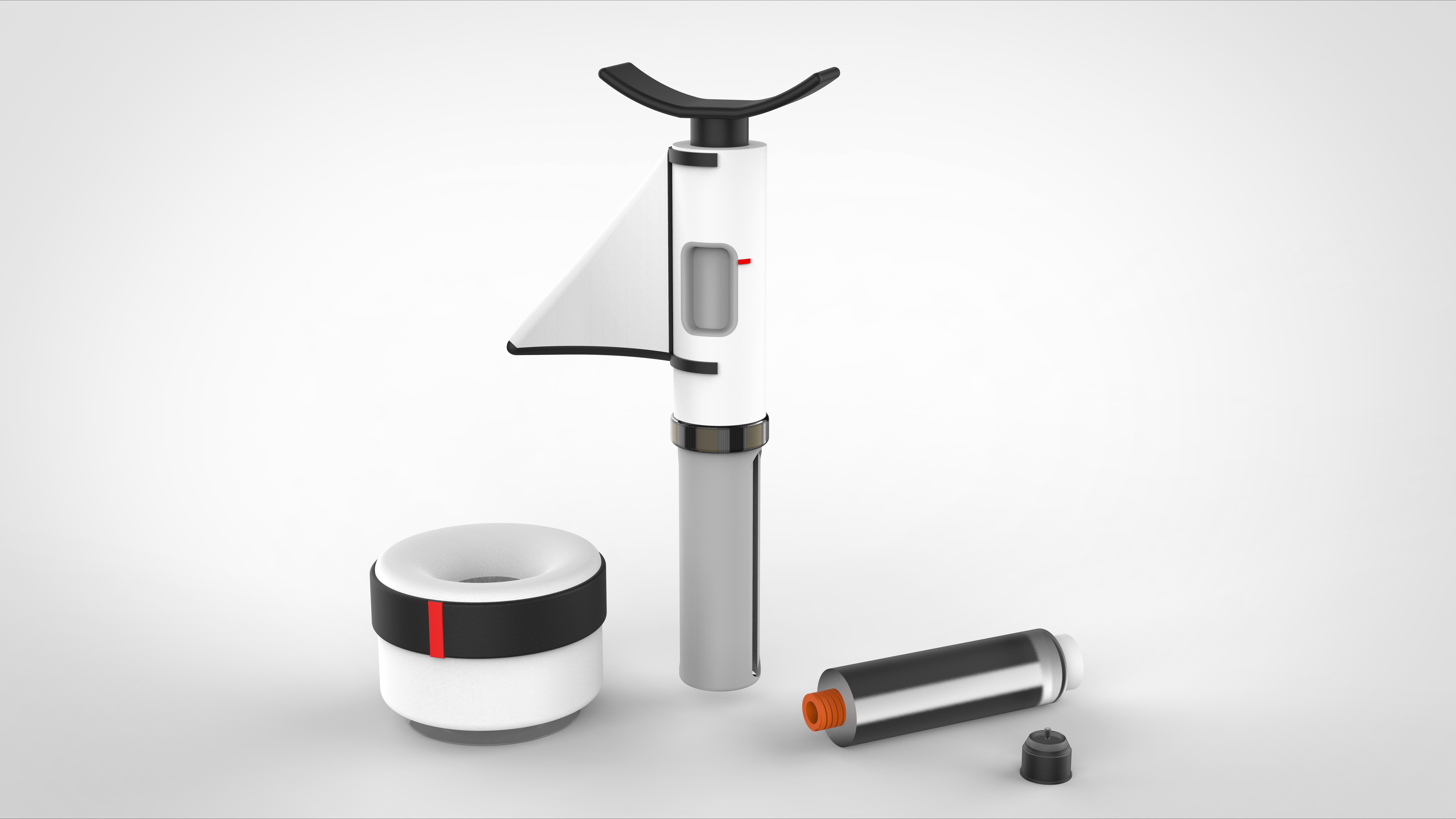
Q&A with Winner of Best Conscious Design Award 2020: Julia Liverton for HanD Pen
WantedDesign’s Best Conscious Design Award for 2020 went to Julia Liverton of Pratt Institute (USA) for her project HanD Pen, an ergonomically designed insulin pen. We interviewed the winners of the Conscious Design Awards to learn more about their projects, their design interests and why the notion of “conscious design” is important to them.
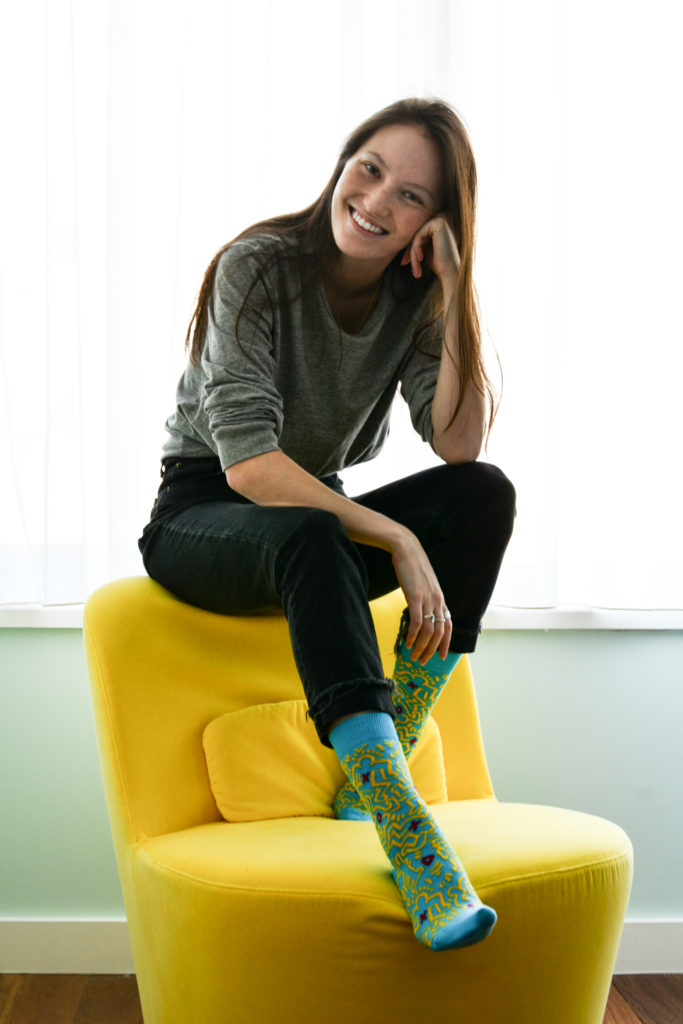
Julia, tell us a bit about you, your school, and your area of study.
I grew up in rural Pennsylvania in a household of scientists. My half Chinese-Malaysian and half British heritage provided me the opportunity to travel quite a bit, giving me a broad view of the world. I didn’t know that I wanted to pursue anything design related until the summer before my senior year in high school, so you could say I was a late bloomer. I initially joined Pratt Institute to pursue Interior Design, but decided to switch to the Industrial Design program after diving headfirst into my 3D foundation course and loving it.
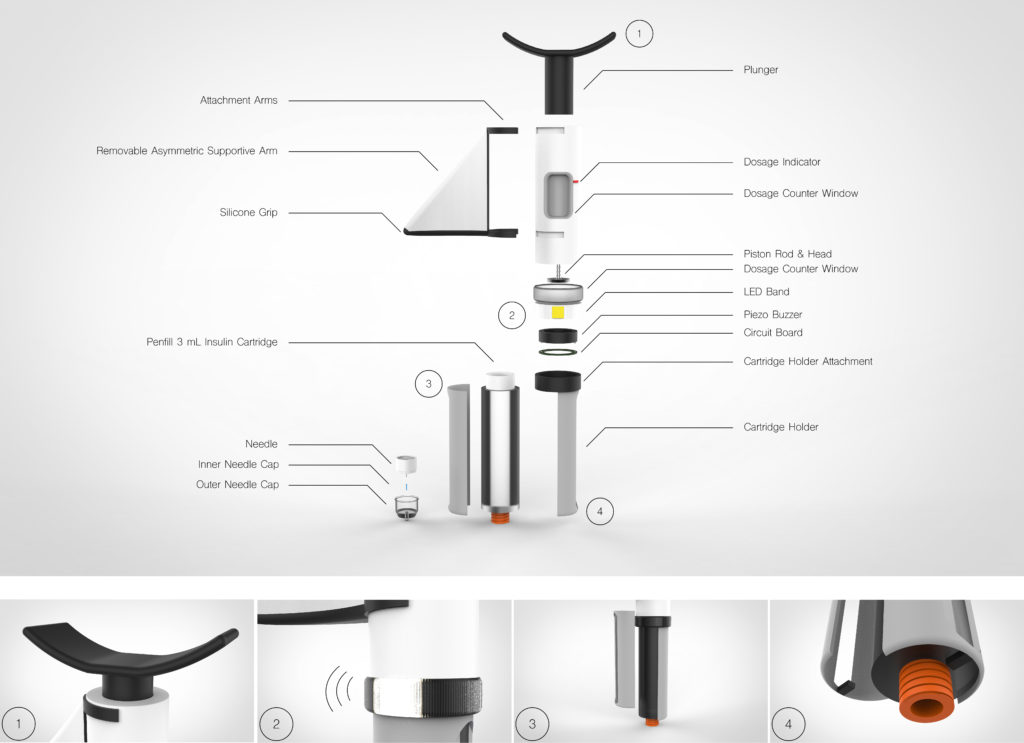
Tell us about the project you presented for WantedDesign Brooklyn
HanD Pen is an insulin pen for aging individuals living with arthritis and diabetes. I decided to pursue this topic for my capstone studio since I had not seen an insulin pen that caters to users living with arthritis in their hands. After reviewing relevant forum posts and statistics, I realized just how often these two conditions overlap with each other. With insulin injections being part of many people’s daily routines, I felt it shouldn’t be challenging or painful for the user.
In terms of the design, I wanted to provide aging individuals a comfortable and convenient option that they would find easier to use, as arthritic products usually have a bulky form. HanD Pen moves away from that, giving the user a sleeker and ergonomic option for their insulin injections.
After conducting research with arthritis and diabetes specialists, I learned the three main self-injection challenges for aging individuals living with these conditions: keeping the pen in for 6 seconds after injection poor ergonomics, and remembering the last injection site. I set out to design an insulin pen that could address these issues.
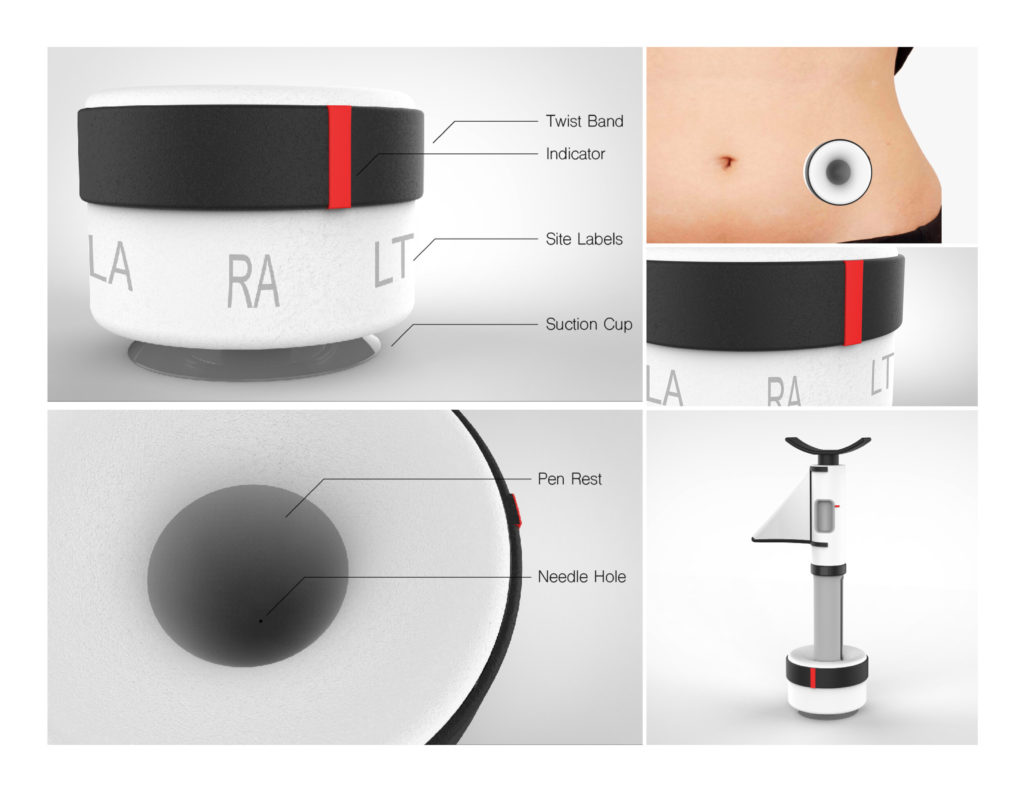
HanD pen is designed to be compatible with standard insulin pen supplies and has 4 key features: a 6 second tracking band that provides audio and visual cues, an ergonomic plunger that allows palm depression and comfortable dose dialing, rubber stoppers to keep the cartridge from falling out or moving while being replaced, and a removable cartridge holder. The separate accessory functions as both an injection site tracker and suction aid to eliminate the need to pinch skin.
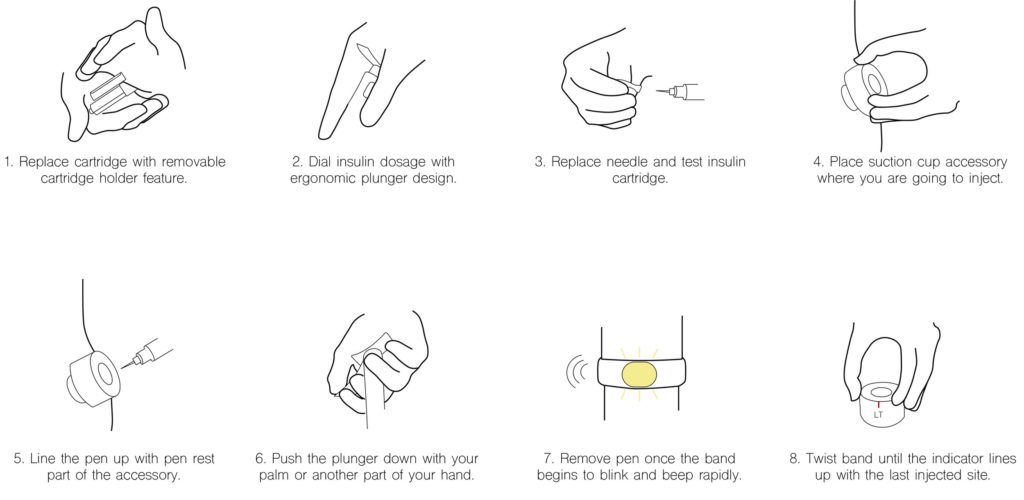
Why do you think your project specially appealed to the Jury?
According to [head juror] Avinash Rajagopal, the jury paid close attention to the process, the outcomes, and the presentation. I think my presentation of the process from current challenges with existing insulin pens for elderly diabetics with arthritis, to how my design solution addressed the different challenges was clear and compelling. The fact that the project could be beneficial to so many individuals may also have been a factor.
How would you like the project to evolve and potentially be implemented?
I am optimizing some of the features before getting a prototype produced, as I am very interested in potentially seeing this through to production. It would be so fulfilling if this project developed into a marketed product – that would mean so much to me. Avinash Rajagopal provided very inspiring feedback, saying that HanD Pen “could make a huge impact in the daily routines of thousands of people”. That is exactly why I chose to work on this project. I am actively researching funding options to develop it to a point where I can partner with a company with expertise in insulin pens, recognizing that these are FDA regulated devices.
How do you and your project relate to the notion of “conscious and responsible design”?
Design should have a purpose and one has to take on the mindset of conscious and responsible design. If we, as designers, do not do this, then anything and everything we produce lacks meaning and will just end up in a landfill. Personally, I think it is my responsibility as a designer to consider whether my design will truly make a difference in someone’s life, and if there is any way that I could make it more sustainable, while not sacrificing the functionality or purpose. I believe my project reflects the notion of conscious and responsible design in that the design was a direct response to common issues and unmet needs.
What is the next step for you? Do you have any other personal projects in which you are working on?
I’ve been fine tuning my portfolio for industrial design job applications when everything from COVID-19 settles down, while also working on some of my own projects. I recently created a template to repurpose cardboard packaging into a playful piggy bank design. I’m also looking into next steps for an eye dropper aid design from a previous studio project that I can finally say is patent pending, as well as working with a glass expert to prototype my design for contemporary drinking glasses.
What is your dream project?
As cheesy as it sounds, I would love to work on projects that really make a difference and improve the user’s daily life in some way. As I am very interested in the simple everyday habits and tasks, it would be inspiring to design a set of products that would help improve routine, yet important daily tasks or activities. There’s this quote by William Morris that really resonates with me: “the true secret of happiness lies in taking a genuine interest in all the details of daily life”. To me this means that the actions we take every day should be intentional and appreciated, so I would love to make a range of products that make us rethink or appreciate the simpler things all over again.
Julia Liverton
Pratt Institute – Industrial Design
Harleysville, PA, United States
www.julialiverton.com
Read more about all the winners of the WantedDesign Conscious Design Awards 2020.


